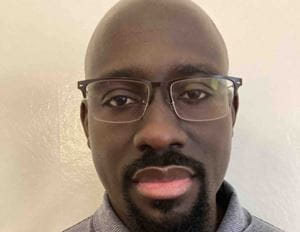Password Reset
Forgot your password? Enter the email address you used to create your account to initiate a password reset.
Forgot your password? Enter the email address you used to create your account to initiate a password reset.
5 Minutes
 UPMC Children’s Hospital of Pittsburgh Division of Child Neurology congratulates Eric N. Anderson, PhD, for becoming one of the National Institutes of Health 2022 MOSAIC K99/R00 Scholars.
UPMC Children’s Hospital of Pittsburgh Division of Child Neurology congratulates Eric N. Anderson, PhD, for becoming one of the National Institutes of Health 2022 MOSAIC K99/R00 Scholars.
Dr. Anderson's research project, supported by the K99/R00 grant, is titled "Investigating the Role of Traumatic Brain Injury in Amyotrophic Lateral Sclerosis and Frontotemporal Dementia (ALS/FTD)" and will build upon and extend the research he has been conducting since joining UPMC Children's in December 2016 as a postdoctoral scholar in the laboratory of Udai Pandey, PhD.
Broadly, Dr. Anderson's neurobiology research is focused on understanding the role that genetic factors and traumatic brain injury play in altering protein functions that, in part, may lead to the development of neurodegenerative disorders such as amyotrophic lateral sclerosis (ALS), Alzheimer's disease, Alzheimer’s disease and related dementia, and chronic traumatic encephalopathy (CTE).
Dr. Anderson’s K99/R00 grant builds upon the work he has led in the Pandey’s Laboratory investigating the link between traumatic brain injury and TDP-43 protein alterations, which potentially might lead ALS and dementias. Previous studies by Dr. Anderson and colleagues were the first to discover that dysfunction in nucleocytoplasmic transport (NCT) occurs in traumatic brain injury. This dysfunction in the movement of cellular constituents into and out of the cell's nucleus is one of the mechanisms that leads to the accumulation of the TAR DNA binding protein 43 (TDP-43) outside of the nucleus. TDP-43, through prior research, has, among other mechanisms, been implicated in neurodegenerative disorders such as ALS and frontotemporal lobar degeneration (FTLD). Prior research also implicated TDP-43 pathology in CTE postmortem brain tissues.
Furthermore, Dr. Anderson’s experiments in a fly TBI model were corroborated by the team and collaborators in both animal models and in human brain tissues from individuals subsequently identified to harbor CTE, through postmortem studies.
Dr. Anderson's new studies, supported by the K99/R00 grant, will pursue the pathophysiologic mechanisms for how traumatic brain injury leads to altered TDP-43 protein and dysregulation of the nuclear pore complex and, ultimately, the nucleocytoplasmic transport mechanisms.
"It's intriguing because, in our TBI investigations, we are seeing the same altered proteins, pathways, and characteristic dysregulation and pathology that we see in postmortem brains tissues of individuals who suffered from Alzheimer's disease and CTE, suggesting potentially similar mechanism," says Dr. Anderson. "However, we're not sure about the exact mechanisms at play that leads to this aberrant dynamic, and understanding that mechanism or mechanisms are the main aim of this research."
Because of the similarities in protein dysregulation and pathology seen in the TBI models and individuals with ALS or other frontotemporal dementias, if Dr. Anderson and colleagues can uncover the mechanism responsible, it may lead to potential therapeutic target options in the future.
"I think what's interesting about this research is that we're not only studying how TBI may lead to pathology and neurodegeneration, and diseases like ALS or CTE, but because of the similarities with other neurodegenerative diseases that affect significant numbers of individuals, we have the potential with this research to effect a very broad spectrum of diseases," says Dr. Anderson. "I've found my research niche here at UPMC Children's and look forward to continuing these studies to better understand what drives some of these debilitating and currently incurable neurodegenerative pathologies."
More about Dr. Anderson
Dr. Anderson's undergraduate degree in biology was earned at Medgar Evers College at the City University of New York. As an undergraduate, he earned a Minority Undergraduate Research Fellowship to conduct research at the California Institute of Technology, and he also earned a Research Education for Undergraduate Fellowship from The Ohio State University. Dr. Anderson then went on to complete his doctoral studies in biology at the State University of New York at Buffalo, where he developed a concentration in neurobiology, with some of his early work being focused on axonal transport in Parkinson's disease, Huntingdon's disease, and Alzheimer's disease, being mentored in his studies by Dr. Shermali Gunawardena.
Dr. Anderson joined the Pandey Laboratory at UPMC Children's in late-2016 as a postdoctoral scholar and, since that time, has concentrated his research efforts on the neurobiology of TBI and neurodegenerative disorders.
Learn more about Dr. Anderson here, and read the full abstract of Dr. Anderson’s K99/R00 project here.
Further Reading
Below is a selection of recently published research from Dr. Anderson focused on TBI and its intersection with ALS/FTD.
Anderson EN, Morera A, Kour S, Cherry JD, Ramesh N, Gleixner A, Schwartz J, Ebmeier C, Old W, Donnelly CJ, Cheng JP, Kline AE, Stein T, Pandey UB. Traumatic injury compromises nucleocytoplasmic transport and leads to TDP-43 pathology. Elife. 2021; 10: e67587.
Lin Y-C#, Kumar MS#, Ramesh N#, #, Anderson EN, Nguyen AT, Kim B, Cheung S, McDonough JA, Skarnes WC, Lopz-Gonzalez R, Landers JE, Fawzi NL, Mackenzie IRA, Lee EB, Nickerson JA, Grunwald D, Pandey UB, Bosco DA. Interaction between ALS-linked FUS and nucleoporins are associated with defectsin the nucleocytoplasmic transport pathway. Nature Neurosci. 2021.
Fortuna TR, Kour S, Anderson EN, Ward C, Rajasundaram D, Donnelly CJ, Hermann A, Wyne H, Shewmaker F, Pandey UB. DDX17 is involved in DNA damage repair and modifies FUS toxicity in an RGG-domain dependent manner. Acta Neuropathol. 2021; doi: 10.1007/s00401-021-02333-z.